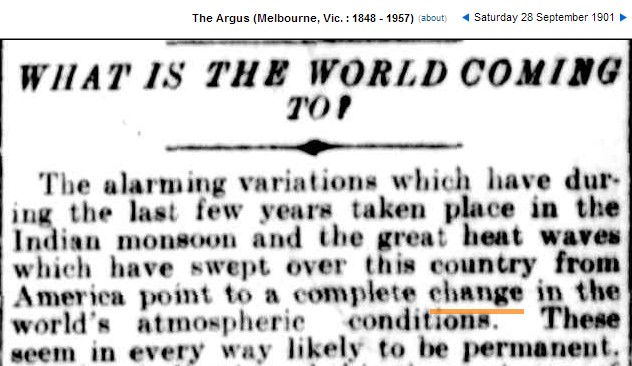Obama promises to fix all this, by taxing electricity.
Disrupting the Borg is expensive and time consuming!
Google Search
-
Recent Posts
- “Why Do You Resist?”
- Climate Attribution Model
- Fact Checking NASA
- Fact Checking Grok
- Fact Checking The New York Times
- New Visitech Features
- Ice-Free Arctic By 2014
- Debt-Free US Treasury Forecast
- Analyzing Big City Crime (Part 2)
- Analyzing Big City Crime
- UK Migration Caused By Global Warming
- Climate Attribution In Greece
- “Brown: ’50 days to save world'”
- The Catastrophic Influence of Bovine Methane Emissions on Extraterrestrial Climate Patterns
- Posting On X
- Seventeen Years Of Fun
- The Importance Of Good Tools
- Temperature Shifts At Blue Hill, MA
- CO2²
- Time Of Observation Bias
- Climate Scamming For Profit
- Climate Scamming For Profit
- Back To The Future
- “records going back to 1961”
- Analyzing Rainfall At Asheville
Recent Comments
- Bob G on Climate Attribution Model
- Bob G on Climate Attribution Model
- Bob G on Fact Checking NASA
- arn on Climate Attribution Model
- Bob G on Climate Attribution Model
- Bob G on Climate Attribution Model
- Bob G on “Why Do You Resist?”
- Gerald Machnee on Fact Checking The New York Times
- Gerald Machnee on Climate Attribution Model
- Gerald Machnee on “Why Do You Resist?”



In 1901, they should have outlawed the evil automobile. We would have been so much better off cleaning up horse manure all these years.
And the maintaining stables, grooming, feeding, shoeing, veterinary services, etc. It was all such fun 🙁
The second paragraph in that article is also interesting, in light of the current wailing over changes in the jet stream:
There’s an element here of “we’ve never noticed it before, so it’s never happened before.” We continue to see this, as with the earlier allegation in the Guardian that the eyes of cheetahs must be being destroyed because cheetahs have no evolutionary experience with shrubs growing in the savannas. They found blinded cheetahs! (Two, perhaps? Where’s the data over time? Is it really true that cheetahs cannot see plants in their path because their eyes are “locked open”?) But at least the cheetah article forces an admission that CO2 is tremendously beneficial to plant growth.
These days, of course, we have progressive media trumpeting any changes, so the idea of “slight notice” the 1901 article complains of will never be an issue for any weather effects that could be amplified to support an agenda.
===|==============/ Keith DeHavelle
The wiki for Onslow, Western Australia. Note the overwhelming proof of anthropogenic global warming, accelerating in the last half of the 20th century.